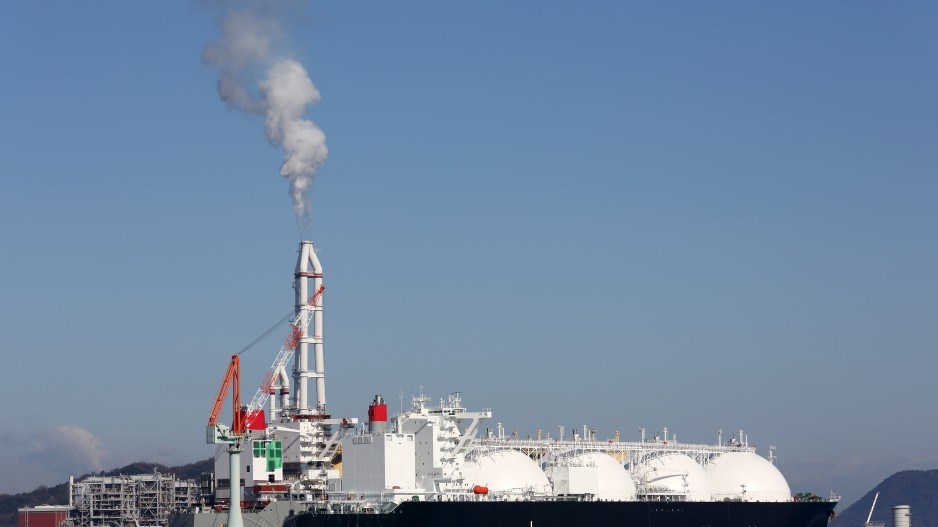Delays at the federal level in approving the $36 billion Pacific NorthWest LNG project are putting Canada at risk of missing out on the biggest market in the world, warns Japan’s ambassador to Canada.
Petronas’ multibillion-dollar liquefied natural gas (LNG) project in Prince Rupert – already past the 750-day mark of what was supposed to be a one-year review – experienced yet another setback in mid-March, when the federal environment minister pushed back a final decision by another three months.
In deferring her decision, federal Environment Minister Catherine McKenna said “several new areas of uncertainty” have arisen, including Pacific NorthWest (PNW) LNG’s position that some of the measures proposed to mitigate effects on fish habitat are not feasible.
In a letter to the Canadian Environmental Assessment Agency (CEAA), Kenjiro Monji, Japan’s ambassador to Canada, warned that the LNG market opportunity in his country is closing fast.
“If the approval of the environmental assessment is delayed further, Canada may run the risk of missing the chance to export LNG to the growing Asian market for a long time,” Monji wrote.
Meanwhile, in Fort Nelson, Fort St. John and Terrace, truckers, small-business owners and First Nations are turning up the heat on Ottawa to approve the project.
Even the Lax Kw’alaams Band, one of the most vigorous opponents, appears to have had something of a change of heart, as a result in a change of leadership.
On March 16, truck rallies held in Terrace, Fort Nelson and Fort St. John drew hundreds of LNG supporters, and one of the organizers said thousands of letters have been sent to politicians in Ottawa urging them to approve the project.
Petronas’ PNW LNG project has long been considered a front-runner project. But it has experienced numerous delays and obstacles, mostly over its choice of a site for its LNG terminal and the potential threat it may pose to salmon habitat.
Those concerns led the Lax Kw’alaams Band last year to reject a $1.2 billion offer of land and cash to support the project.
But in a change in leadership in November, the former mayor, Garry Reece, was replaced by John Helin. (Lax Kw’alaams do not use the term chief for elected leaders).
In a letter to the CEAA, Helin wrote that if the federal environment minister approves the project, the Lax Kw’alaams will support the decision, provided it meets certain conditions.
Those conditions include PNW LNG reporting to an environmental performance committee – which would include Lax Kw’alaams membership – on environmental monitoring, and acting on its advice.
Not all Lax Kw’alaams are on board with that position, however. A group of hereditary chiefs have filed a title claim on Lelu Island, the proposed site of PNW LNG’s plant.
While the project has given rise to concerns about potential damage to the marine environment, Fisheries and Oceans Canada and the CEAA concluded in a draft recommendation that there was low potential for adverse effects on fish and fish habitat.
That conclusion has been criticized in a letter signed by 130 scientists, many of them fisheries biologists and ecologists, who say the environmental review was scientifically flawed.
In his letter to the CEAA, Monji stated that Japan is keen to secure LNG contracts with Canadian producers but warns that a window of opportunity is closing fast.
Japan is trying to secure long-term contracts to meet its target of having LNG provide 27% of the country’s energy by 2030.
“Canada is one of the most promising potential LNG supply sources, with major reserves of natural gas,” Monji wrote. But he adds that Canada has competitors.
“The global LNG market has changed drastically from a seller’s market to a buyers,’ and competition among LNG suppliers is increasing. As LNG exports are usually based on long-term contracts, should Canada miss a window in demand for LNG, the next opportunity may be 10 or 20 years in the future.”
See also: |




